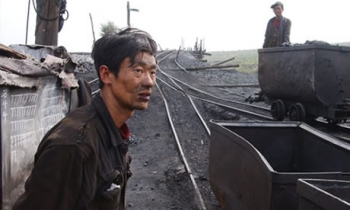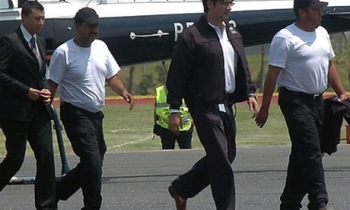LAHORE, June 24 : All Pakistan Newspaper Society (APNS) and Indian Newspaper Society (INS) may soon work out details to import newsprint and other materials used in production of newspapers from Western countries.
Talking to reporters at a lunch that the Jang Group of Newspapers hosted for a visiting Indian delegation, INS president and Zee News chief executive officer Pardeep Guha said: "The possibility for opening up of various avenues between the Indian and Pakistani media is there, but it will be too early to trace them."
The delegation comprising 30 senior editors and publishers of Indian newspapers is on a five-day visit to Pakistan for the 500th meeting of the INS executive committee on invitation of the South Asian Free Media Association (Safma).
"The APNS and the INS had a formal meeting in Islamabad on Wednesday and the import of newsprint came up for discussion because this can benefit both Indian and Pakistani newspaper groups," Pardeep said. He viewed that they would be in a better bargaining position against exporters about determining the price of imports if the APNS and INS reached an agreement beforehand.
At present, Pardeep said, the APNS and the INS had decided in principle to continue interaction on matters pertaining to print and electronic media. The INS president said the talks with the APNS would be discussed in the meeting of the INS executive committee.
The Zee News CEO remained the focus of attention for the Pakistani media because of his progressive and pragmatic approach regarding media in India and Pakistan. He is of the opinion that the media should play a proactive role for normalisation of Pak-India relations.
He was appreciative of the demand put forward at a roundtable conference convened by Safma regarding free movement of journalists and media products between the two countries.
Pardeep assured participants of the conference – which the editors of Pakistani newspapers and representatives of the APNS and the Council of Pakistani Newspaper Editors (CPNE) also attended – that the INS would make a formal proposal on the demand after studying the protocol presented by Safma, in its next executive committee meeting. The visiting editors were unanimous about the quality of Pakistani newspapers. They recognised Pakistani media as quite vibrant, observing that Pakistani newspapers focused more on views than news content. "The press in Pakistan is vibrant and forward looking than it was 20 years ago," said Maman Mathew of daily The Hindu.
Talking about the issues highlighted in majority of Indian language newspapers, North Indian newspaper Amar Ujala managing editor Atun Maheshware said India was going to be the leading newspaper market because it targeted the youth unlike the US and EU newspapers, which produced newspapers for the old.
"Amar Ujala that caters for readership of the five North Indian states – Uttar Pardesh, Uttranchal Pardesh, Himachal Pardesh, Punjab and Harayana – and the Held Jammu and Kashmir do not carry any more political news on its front page but focus on the real issues of people besides printing news and views about different sections of the society," he said.
About the media role in promoting peace between India and Pakistan, Atun said that with the change in atmosphere the newspapers did get the impact, and they were reflecting peace sentiments.
He said the north of the country had a different demographic composition unlike the rest of India and there lived Muslims and Hindus at the ratio of 60:40. To provide for the public sentiment, he said, the newspapers had to carry well-knitted news items with a great responsibility.
Dr R Lakhsmipathy, the publisher of Tamil language newspaper Dinamala (flower), said the quality of Pakistani newspapers, including language newspapers, was very good. However, he added the Pakistani papers that he read during the visit had more political material, giving a little space to socio-economic issues.
He opined that the Kashmir issue should be taken as a humanitarian and economic issue than one of religious or ethnic divide. "Pakistan and India should simply forget about Kashmir for sometime and keep enhancing the stakes for people in the peace process," he said. "The moment the two countries are able to develop trust and raise stakes on economic well-being," he added, "the Kashmir dispute would not remain as intense as it is at the moment, but would be gradually settled as desired by India and Pakistan and in consonance with the aspirations of Kashmiris."









